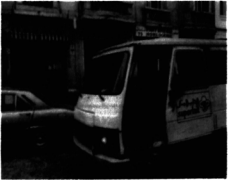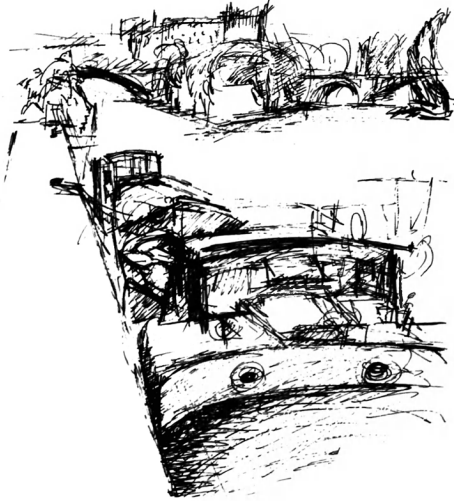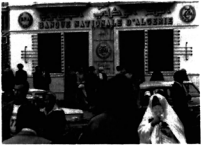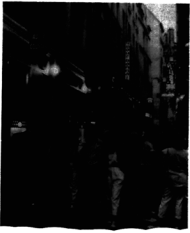12.2: Quick reaction tests
- Page ID
- 142344
Réponses rapides
A. Quick reaction tests
1. Your instructor will give you a noun; you respond by adding an appropriate adjective. We'll use both the patterns in the model:
Model: a. INSTRUCTOR SAYS: le ciel
STUDENT REPLIES: Le ciel est bleu.
b. INSTRUCTOR SAYS: C'est une maison.
STUDENT REPLIES: C'est une belle maison.

Here are some of the words the instructor may use (but be prepared for others):
| professeur | porte | éléphant | sac | salle | chat | affaire |
| question | décision | roman | fleur | train | ami | famille |
2. This time your instructor will provide an adjective; you respond by giving a contrasting adjective. We do not insist that you find an exact opposite, just one that is toward the opposite end of the scale. Some obvious pairs are blanc/noir; grand/petit; vieux/jeune. Others might be more interesting...
Exercice II
Prepare a list of ten objects that you will propose in class, following the same pattern as in Réponses rapides: Ah As usual, be sure you have appropriate adjectives to attach to each of your nouns.
Exercice III
Answer the question, using the adjective given in parentheses. Be sure to give the proper form of the adjective.
Model: A-t-il un château? (magnifique)
Oui, il a un château magnifique.
- Cunégonde est une jeune fille? (appétissant)
Oui, c'est - Candide est un garçon? (simple)
Oui, c'est - Le baron a un château? (beau)
_____________________________________ - Pangloss est philosophe? (grand)
Oui, c'est - Est-ce qu'il écrit des romans? (extraordinaire)
_____________________________________ - Jean vous a donné une robe? (bleu)
_____________________________________ - Vous allez faire un voyage? (intéressant)
Oui, nous - On t'a servi un dîner? (délicieux)
_____________________________________
PARTIR, to leave SORTIR, to go (to take out)
| Je pars demain. | I'm leaving tomorrow. |
| Tu sors avec Henri? | You go out with Henry? |
| Il part pour Paris. | He's leaving for Paris. |
| Nous partons. | We're leaving. |
| Vous sortez la voiture? | Are you taking the car out (of the garage)? |
| Elles partent à six heures. | They're leaving at six o'clock. |
| Passé composé: je suis parti(e), ...; je suis sorti(e)... AND j'ai sorti (when transitive, meaning to take out) | |
| Imparfait: je partais, ...; je sortais, ... | |
| Futur: je partirai, ...; je sortirai, ... | Futur proche: je vais partir, ...; je vais sortir, ... |


Réponses Rapides
B. Prepositions with geographical locations.
- Nous avons voyagé en France. (Europe, Canada, Allemagne, Mexique)
- Avez-vous visité la France? (Etats-Unis, Espagne, Canada, Suisse)
- Ils vont aller en France. (Espagne, Belgique, japon, Angleterre)
- Il part pour la France. (Canada, Etats-Unis, Chine, Brésil)
- As-tu visité Paris? (Marseille, Londres, Nice, Lyon)
- Veux-tu aller à Paris? (Grenoble, Besançon, Strasbourg, Berlin)
Grammar Notes: The treatment of geographical locations is explained in the Reference Grammar, 15.1.
Exercice IV
Prepare three short paragraphs at home, following this model (name a country you've visited or would like to visit; then name three cities you visited or are planning to visit in that country; then add a comment, using your imagination). Be prepared to answer follow-up questions.
Model. L'année passée, je suis allé au Canada. J'ai visité Québec, Montréal et Toronto. A Québec, j'ai parlé français. A Toronto, j'ai parlé anglais.
Or: Cet été, je vais visiter l'Espagne. J'espère aller à Barcélone, à Madrid et à Saint Jacques de Compostelle. Les pèlerins au moyen âge allaient à Saint Jacques de Compostelle.


